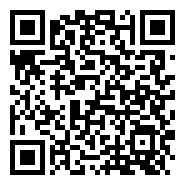日志
贴标签,扣帽子是消极的辩论方式
||
在辩论中,一些人喜欢给对手贴标签以占据上风。这种做法通常是一种修辞手段,其目的是通过给对手贴上特定的标签或描述,以影响观众对他们的看法。这可能是一种人身攻击的形式,重点在于抹黑对方而非解决其论点的实质。虽然这可能在左右观点方面具有一定效果,但总体而言,这不是一种建设性或诚实的辩论方式。以下是辩论中常见的一些标签类型:
人身攻击: 这涉及攻击对手的性格或个人特征,而不是对其论点进行实质性的讨论。例如,称某人为“无知”或“不明智”而不是针对其提出的观点进行讨论。
使用刻板印象: 给对手贴上刻板印象或广泛概括的标签,以便在不涉及实质性讨论的情况下对其观点进行排斥。这可能涉及使用诸如“激进”、“极端”或“精英主义者”等术语。
草人谬误: 草人谬误涉及对对手的真实立场进行曲解,然后攻击曲解后的观点。这可能会创造一个虚假的叙述,更容易进行批评。
恶意标签: 使用贬低性或情绪化的语言来描述对手,例如称其为“愚蠢”、“偏见”或“不诚实”。
需要注意的是,诉诸标签和人身攻击可能会削弱辩论的质量,阻碍寻找共同点。建设性的辩论应该集中于解决论点的实质,提供有理有据的反驳意见,并对不同观点保持一定的尊重。有效的沟通涉及倾听对立意见、提供合理的反驳和保持对不同观点的尊重。
Labeling opponents during a debate is a rhetorical strategy that involves assigning a specific label or characterization to your opponent with the intention of influencing the audience's perception of them. This can be a form of ad hominem attack, where the focus is on discrediting the person rather than addressing the substance of their arguments. While it may be effective in swaying opinions, it is generally not a constructive or intellectually honest approach to debating. Here are a few common types of labels used in debates:
Ad Hominem Attacks: These involve attacking the character or personal traits of your opponent rather than engaging with their arguments. For example, calling someone "ignorant" or "uninformed" instead of addressing the points they've raised.
Labeling with Stereotypes: Assigning stereotypes or broad generalizations to your opponent can be a way to dismiss their perspective without engaging in a substantive discussion. This might involve using terms like "radical," "extremist," or "elitist."
Straw Man Fallacy: Instead of addressing your opponent's actual position, a straw man argument involves misrepresenting their position and then attacking the misrepresentation. This can create a false narrative that is easier to criticize.
Name-calling: This involves using derogatory or emotionally charged language to describe your opponent, such as calling them "stupid," "biased," or "dishonest."
It's important to note that resorting to labeling and personal attacks can undermine the quality of the debate and hinder the search for common ground. Constructive debates should focus on addressing the substance of arguments, presenting evidence, and fostering a better understanding of different perspectives. Effective communication involves listening to opposing views, providing well-reasoned counterarguments, and maintaining a level of respect for differing opinions.







